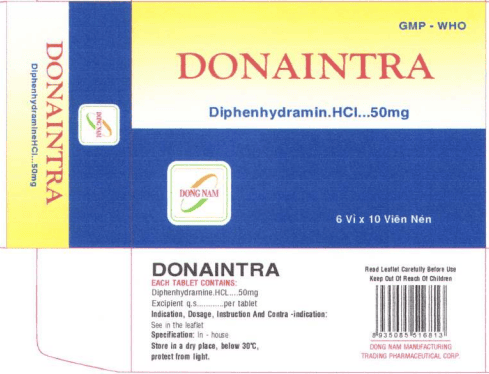This is an automatically translated article.
Oral allergy syndrome is a common food-related allergic condition that develops in adults. Some fresh fruits like vegetables can cause allergic reactions in the mouth and throat due to proteins that have a structure similar to pollen.
1. What is oral allergy syndrome?
Oral allergy syndrome (OAS) is a common food-related allergic condition that develops in adults. Oral allergy syndrome is associated with environmental allergies, such as hay fever. When you have oral allergy syndrome, certain fresh fruits, nuts, and vegetables can cause an allergic reaction in the mouth and throat due to proteins that are structurally similar to pollen. In other words, your body confuses fruit protein with pollen protein. Specific immunoglobulin E antibodies in your immune system cause allergic reactions. For that reason, the condition is sometimes called fruit pollen allergy syndrome.Symptoms tend to be worse at times of the year when pollen counts are high. Each person will have a different body, so oral allergy syndrome caused by foods will also be different. However, oral allergy syndrome occurs only as a result of cross-reactivity between pollen and structurally similar proteins in certain fruits. Some common causes of oral allergy syndrome include:
Bananas Cherries Oranges Apples Peach Tomatoes Tomatoes Cucumbers Pumpkins Bell Peppers Sunflower Seeds Carrots Fresh herbs, such as smell parsley or cilantro If you have oral allergy syndrome, tree nuts, such as hazelnuts and almonds, can trigger symptoms. Oral allergy syndrome is usually milder than systemic nut allergy which can be fatal. People with oral allergy syndrome will generally not have a severe allergic reaction. The reaction is usually limited to the mouth and throat area, but can progress to systemic symptoms in 9% of people. Anaphylaxis is very rare, but it can occur in up to 2% of people. In other cases, people may mistake a severe nut or legume allergy for oral allergy syndrome.

Hội chứng dị ứng miệng có liên quan đến một số loại thực phẩm hàng ngày
2. Symptoms of oral allergy syndrome
Oral allergy symptoms can vary, but they tend to be concentrated in the mouth and throat area, rarely affecting other parts of the body. Oral allergy syndrome may present with the following symptoms:
Itching on the tongue or roof of the mouth Swelling or numbness of the lips Itchy throat Sneezing and stuffy nose People who are allergic to birch pollen, grass pollen and pollen ragweed is most likely to suffer from oral allergy syndrome, according to the American College of Allergy, Asthma and Immunology. Young children are usually not affected by oral allergy syndrome. Often, young people will have symptoms of OAS for the first time after eating trigger foods for many years without problems. Plant and grass pollination between April and June tends to be the peak time for oral allergy syndrome. September and October can return symptoms as the weed undergoes pollination.
MORE: Food allergies: What you need to know
3. Treatment of oral allergy syndrome
The best treatment for oral allergy syndrome is to avoid irritating foods. Some other easy ways to reduce symptoms of oral allergy syndrome include the following tips:
Cook or reheat your food. Cooking food with heat changes the protein composition of the food, helping to remove allergenic factors. Buy canned vegetables or fruit. Peel the skins of vegetables or fruits, as the protein that causes oral allergy syndrome is often found in the skin of the product. In addition, your doctor may prescribe over-the-counter (OTC) treatments with OTC histamine blockers, or antihistamines, used for hay fever that may work for allergy symptoms. mouth response. According to a 1991 study, Diphenhydramine (Benadryl) and fexofenadine (Allegra) can be used to relieve itchy, watery eyes, and itchy throat when you have a pollen allergy. They can also sometimes stop the reactions of oral allergy syndrome.

Sơ chế và chế biến thực phẩm tốt giúp tránh nguy cơ mắc hội chứng dị ứng miệng
In addition, immunotherapy is also one of the treatments for oral allergy syndrome. In a 2004 clinical study, participants were able to tolerate small amounts of birch pollen activators following immunotherapy. However, they cannot completely overcome the symptoms of the immune syndrome.
In a nutshell, allergic syndrome is a common food-related allergic condition that develops in adults. In about 9% of people with oral allergy syndrome, symptoms can become more severe and require medical assistance. So, if you have a reaction to a pollen-containing food that extends beyond your mouth, you should seek medical attention for prompt treatment.
Please dial HOTLINE for more information or register for an appointment HERE. Download MyVinmec app to make appointments faster and to manage your bookings easily.
Reference source: healthline.com












